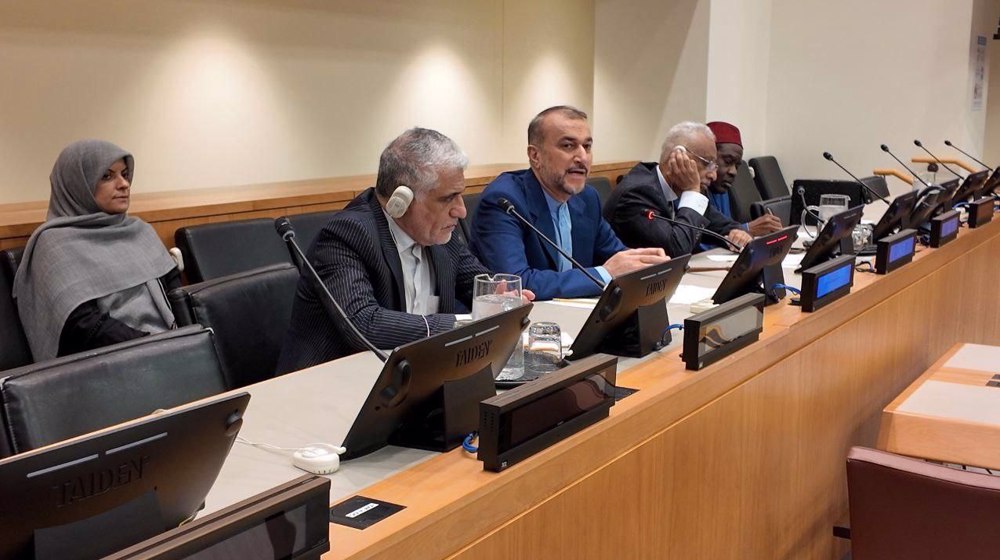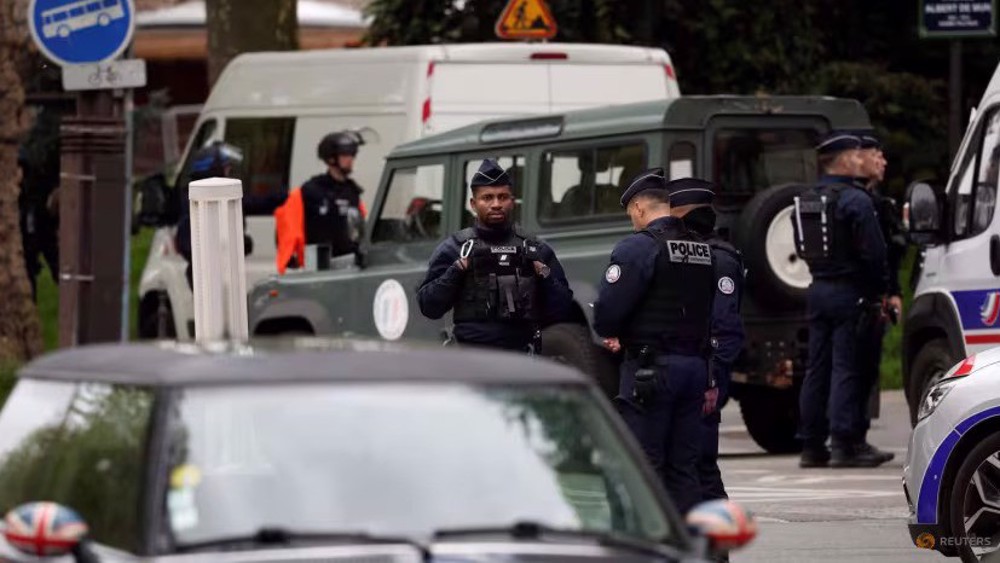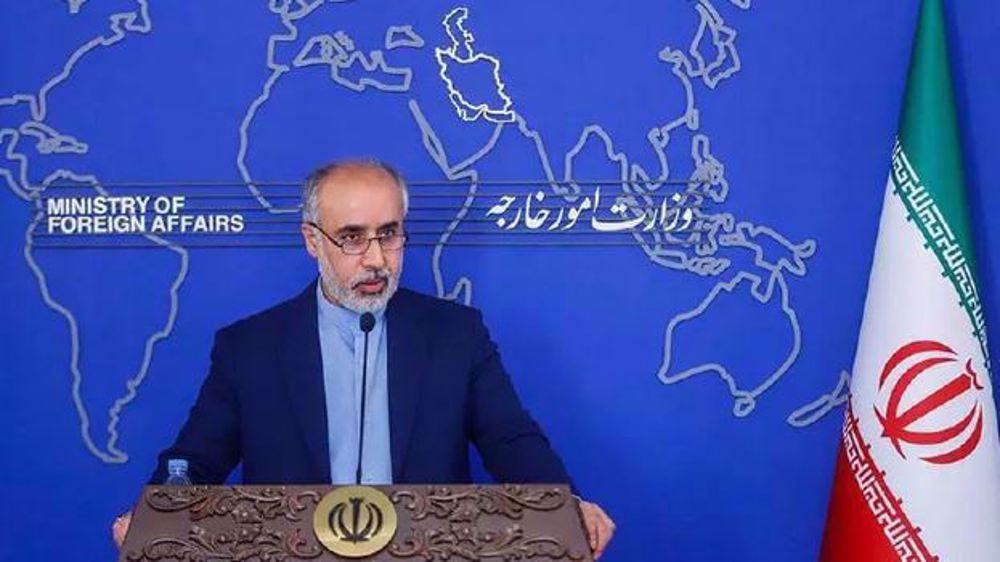JCPOA implementation offers chance for new regional cooperation: Iran
Iran says the recent implementation of a nuclear agreement between the Islamic Republic and the P5+1 group of countries has provided new opportunities for enhanced regional cooperation.
Iran’s Parliament (Majlis) Speaker Ali Larijani made the remark in the Iraqi capital city of Baghdad on Sunday as the Parliamentary Union of the Organization of Islamic Cooperation (PUIC) was opening its 11th session.
The implementation of the agreement “opened a new chapter for the enhancement of cooperation between Iran and the countries of the region,” he said.
The Islamic Republic and the five permanent members of the UN Security Council – Britain, China, France, Russia and the United States – plus Germany finalized the agreement, dubbed the Joint Comprehensive Plan of Action (JCPOA), in the Austrian capital of Vienna on July 14, 2015.
Iranian Foreign Minister Mohammad Javad Zarif and European Union foreign policy chief, Federica Mogherini, announced the implementation of the JCPOA during a joint press conference in the Austrian capital on January 16. After the JCPOA went into effect on January 16, all nuclear-related sanctions imposed on Iran by the European Union, the United Nations Security Council, and the United States were terminated. Iran in return has put some limitations on its nuclear activities.
“By taking advantage of the atmosphere after the Vienna agreement, the countries of the region can take key steps toward the elimination of common threats like terrorism and extremism and help with the development and advancement of the region, too,” Larijani noted.
The PUIC session is gathering representatives from 40 Muslim countries, including 16 Arab nations. Saudi Arabia, Qatar, the United Arab Emirates, and Bahrain are absent at the session.
“Over the course of the nuclear negotiations, we heard that one of the countries of the region was pressing a great power to delay the talks so they could reduce oil prices. They harmed all Muslim countries [with the reduction of the prices],” said the Iranian official. “Iran is not dependent on oil and enjoys several resources. They, however, did everyone damage as a result of their delusion.”
Larijani said, “After the agreement too, they instilled the concern into the countries of the region that Iran may invade the regional nations,” asking, “Has the Islamic Republic of Iran invaded any country in the region over the past 36 years?”
“The nuclear agreement was, in fact, the victory of diplomacy and the negation of threats and sanctions, and it displayed the effectiveness of the peaceful approaches of conflict resolution more than before.”
The Iranian speaker referred to the crises in Syria and Yemen – where Saudi Arabia is respectively backing armed anti-government militants and directly waging a war – and said, “The issues of Syria and Yemen and other countries in the region have no military solution; they will rather get resolved through political means and dialog.
Saudi Arabia launched the military aggression against Yemen in March 2015, killing so far over 8,200 people. In Syria, the foreign-backed militancy has claimed the lives of 260,000 people since the outbreak of violence in 2011.
The military solution only paves the ground for terrorism, Larijani said, noting that Tehran only recommends negotiations.
Hackers break into Israeli military’s computers, access trove of documents
Tulkarm Brigade commander killed by Israeli forces in raid on refugee camp
Zionist media desperately trying to turn Israeli defeat into victory: Iran
VIDEO | Press TV's news headlines
Iran censures US veto of Palestinian request for full UN membership
Over 14,000 kids killed in Israel’s war on Gaza: UNICEF
VIDEO | Iran’s National Army Day marked at the Iranian embassy in Moscow
VIDEO | Iranian culture fosters further development, understanding in SA















 This makes it easy to access the Press TV website
This makes it easy to access the Press TV website